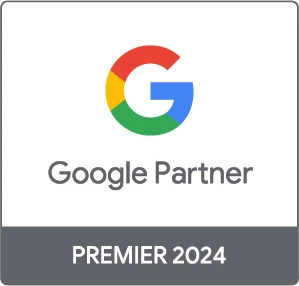SEO services: Top-10 Fails
Ever more companies in Greece turn to internet marketing and its cornerstone, SEO; limited cash flows and the ever growing tech-literacy definitely played their part in shaping this trend.
The optimization of Search Engine Result Pages (SERPs) is one of those fields where many improprieties occur. One of the reasons this is happening is the wide array of professionals claiming nowadays to offer SEO services.
Constantly, even more professionals of various expertise add SEO to their job description. (To be exact, in the USA less than 50,000 professionals have SEO as a job title on LinkedIn, when more than half a million include it in their job description.)
In reality, a number of professionals just take advantage of an audience that still seeks to understand lies from reality.
Fail SEO, which we will present right away, is not an exclusive privilege of those.[divider_1]
1. Failure to follow developments
The failure to follow the most recent developments in Google’s algorithms and adopt elements from successful case studies from across the Atlantic- where algorithmic updates are usually first rolled out, is one of the prerequisites of a successful modern SEO. What may today be in accordance with Google’s guidelines may as well tomorrow be indifferent to your rankings or might even be doing harm.
2. Neglecting long-tail keywords
We characterize as long-tail keywords those consisting of a sequence of individual keywords or search queries. One-by-one they do have less traffic than the primary keywords, but when the long-tail adds up they result in much higher traffic and, most-importantly, bring in visitors much closer to the latest and most crucial conversion stage.
Practically, a first place ranking for “iPhone cases” may sound promising, but he who manages to rank for all of “black/white/red/… case for iPhone 5/6/6 Plus/…” will acquire a greater number of leads.
3. Acquiring spam links
Not much to say here, since theory and action both reach one conclusion: One good link from an authoritative site will bring better results than a dozen link from low quality domains. And without the dangers of the latter.
4. Existence of duplicate content
From 2010 onwards Google holds a punitive stance towards websites with duplicate content, whether the violation happens on purpose or not. (The latter is often the case on one-page websites that try to SEO.)
On a sidenote: Various agencies and professionals do SEO for their clients by building Private Blog Networks and posting content with light variations of the very same article (known as article spinning). The only purpose of this trend is to provide low quality links to the website they have been called to promote. It’s only a matter of time before their client’s domain is punished.
5. Using a non SEO-friendly Content Management System (CMS)
A non SEO-friendly CMS will set you a couple steps behind competition even before your website goes live. And what is the use of the best “store” in the world when it is hidden in the midst of a desert. Swap “desert” with second page of Google and you can get the picture.
And this brings us to a problem that is an often occurrence in Greece:
90% of the corporate websites creates do not have a reason to be developed on a “custom” CMS; neither your portal, nor your small-scale eshop does. Let this be described in another manner too: When you just want to cross the road and someone is offering you a Ferrari as the most suitable solutions there’s either a Lada beneath the hood or he’s just waiting to milk you from the…service.
6. Improper website architecture
A number of firms fail to develop a website architecture that will benefit them SEO-wise. The reason for that is that the strategic directions usually come from a corporate team not familiar with SEO.
Before laying out the “map” of your new website try counting you SEO goals in, or offer a seat on the table to your all-things-digital expert.
7. “Invisible” keywords
One would consider this a well-known fact by now but reality shows there’s still a need to lay it out: stuffing websites with invisible phrases and keywords is a bulletproof manner to get your domain punished and have it disappear from Google’s organic search engine results. Just don’t!
8. Uncrawlable websites
One has to ascertain that his website is optimally set to be crawled and indexed by the search engines. Browsing elements have to be distinctly apparent and each one of your pages has to be easy to navigate to, both by your visitors as well as the Search engine spiders.
9. Neglecting your analytics
SEO has no guaranteed result unless you take analytics (which are in abundance on the web) into effect. Continuous optimization and the fine-tuning of your strategy is the only way to materialize a successful online strategy.
10. Lack of patience
Remember that SEO is a service where its benefits aren’t always immediately apparent, but when they do come they last and save you from a great deal of strenuous advertising efforts. If you do need immediate results or find yourself in a market that has high seasonality you may turn to Adwords, Display Network or advertising on Facebook and the other social networks.[divider_1]
Benefits of SEO on your business may not come overnight, but if you do follow the developments in the SEO industry, have the necessary resources, make sure whoever is managing your website knows what they are doing and, finally, stay creative, you will enjoy the fruits of a successful digital strategy. Guaranteed.






